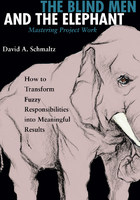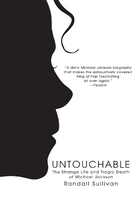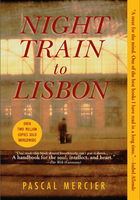Illustrative, like the preceding one, of the old Proverb, that Adversity brings a Man acquainted with strange Bedfellows-Likewise containing Mr. Pickwick's extraordinary and startling Announcement to Mr. Samuel Weller
When Mr. Pickwick opened his eyes next morning, the first object upon which they rested was Samuel Weller, seated upon a small black portmanteau, intently regarding, apparently in a condition of profound abstraction, the stately figure of the dashing Mr. Smangle; while Mr. Smangle himself, who was already partially dressed, was seated on his bedstead, occupied in the desperately hopeless attempt of staring Mr. Weller out of countenance. We say desperately hopeless, because Sam, with a comprehensive gaze which took in Mr. Smangle's cap, feet, head, face, legs, and whiskers, all at the same time, continued to look steadily on, with every demonstration of lively satisfaction, but with no more regard to Mr. Smangle's personal sentiments on the subject than he would have displayed had he been inspecting a wooden statue, or a straw-embowelled Guy Fawkes.
'Well; will you know me again?' said Mr. Smangle, with a frown.
'I'd svear to you anyveres, Sir,' replied Sam cheerfully.
'Don't be impertinent to a gentleman, Sir,' said Mr. Smangle.
'Not on no account,' replied Sam. 'if you'll tell me wen he wakes, I'll be upon the wery best extra-super behaviour!' This observation, having a remote tendency to imply that Mr. Smangle was no gentleman, kindled his ire.
'Mivins!' said Mr. Smangle, with a passionate air.
'What's the office?' replied that gentleman from his couch.
'Who the devil is this fellow?'
''Gad,' said Mr. Mivins, looking lazily out from under the bed-clothes, 'I ought to ask you that. Hasn't he any business here?'
'No,' replied Mr. Smangle. 'Then knock him downstairs, and tell him not to presume to get up till I come and kick him,' rejoined Mr. Mivins; with this prompt advice that excellent gentleman again betook himself to slumber.
The conversation exhibiting these unequivocal symptoms of verging on the personal, Mr. Pickwick deemed it a fit point at which to interpose.
'Sam,' said Mr. Pickwick.
'Sir,' rejoined that gentleman.
'Has anything new occurred since last night?'
'Nothin' partickler, sir,' replied Sam, glancing at Mr. Smangle's whiskers; 'the late prewailance of a close and confined atmosphere has been rayther favourable to the growth of veeds, of an alarmin' and sangvinary natur; but vith that 'ere exception things is quiet enough.'
'I shall get up,' said Mr. Pickwick; 'give me some clean things.' Whatever hostile intentions Mr. Smangle might have entertained, his thoughts were speedily diverted by the unpacking of the portmanteau; the contents of which appeared to impress him at once with a most favourable opinion, not only of Mr. Pickwick, but of Sam also, who, he took an early opportunity of declaring in a tone of voice loud enough for that eccentric personage to overhear, was a regular thoroughbred original, and consequently the very man after his own heart. As to Mr. Pickwick, the affection he conceived for him knew no limits.
'Now is there anything I can do for you, my dear Sir?' said Smangle.
'Nothing that I am aware of, I am obliged to you,' replied Mr. Pickwick.
'No linen that you want sent to the washerwoman's? I know a delightful washerwoman outside, that comes for my things twice a week; and, by Jove!-how devilish lucky!-this is the day she calls. Shall I put any of those little things up with mine? Don't say anything about the trouble. Confound and curse it! if one gentleman under a cloud is not to put himself a little out of the way to assist another gentleman in the same condition, what's human nature?'
Thus spake Mr. Smangle, edging himself meanwhile as near as possible to the portmanteau, and beaming forth looks of the most fervent and disinterested friendship.
'There's nothing you want to give out for the man to brush, my dear creature, is there?' resumed Smangle.
'Nothin' whatever, my fine feller,' rejoined Sam, taking the reply into his own mouth. 'P'raps if vun of us wos to brush, without troubling the man, it 'ud be more agreeable for all parties, as the schoolmaster said when the young gentleman objected to being flogged by the butler.'
'And there's nothing I can send in my little box to the washer-woman's, is there?' said Smangle, turning from Sam to Mr. Pickwick, with an air of some discomfiture.
'Nothin' whatever, Sir,' retorted Sam; 'I'm afeered the little box must be chock full o' your own as it is.'
This speech was accompanied with such a very expressive look at that particular portion of Mr. Smangle's attire, by the appearance of which the skill of laundresses in getting up gentlemen's linen is generally tested, that he was fain to turn upon his heel, and, for the present at any rate, to give up all design on Mr. Pickwick's purse and wardrobe. He accordingly retired in dudgeon to the racket-ground, where he made a light and whole-some breakfast on a couple of the cigars which had been purchased on the previous night. Mr. Mivins, who was no smoker, and whose account for small articles of chandlery had also reached down to the bottom of the slate, and been 'carried over' to the other side, remained in bed, and, in his own words, 'took it out in sleep.'
After breakfasting in a small closet attached to the coffee-room, which bore the imposing title of the Snuggery, the temporary inmate of which, in consideration of a small additional charge, had the unspeakable advantage of overhearing all the conversation in the coffee-room aforesaid; and, after despatching Mr. Weller on some necessary errands, Mr. Pickwick repaired to the lodge, to consult Mr. Roker concerning his future accommodation.
'Accommodation, eh?' said that gentleman, consulting a large book. 'Plenty of that, Mr. Pickwick. Your chummage ticket will be on twenty-seven, in the third.'
'Oh,' said Mr. Pickwick. 'My what, did you say?'
'Your chummage ticket,' replied Mr. Roker; 'you're up to that?'
'Not quite,' replied Mr. Pickwick, with a smile.
'Why,' said Mr. Roker, 'it's as plain as Salisbury. You'll have a chummage ticket upon twenty-seven in the third, and them as is in the room will be your chums.'
'Are there many of them?' inquired Mr. Pickwick dubiously.
'Three,' replied Mr. Roker.
Mr. Pickwick coughed.
'One of 'em's a parson,' said Mr. Roker, filling up a little piece of paper as he spoke; 'another's a butcher.'
'Eh?' exclaimed Mr. Pickwick.
'A butcher,' repeated Mr. Roker, giving the nib of his pen a tap on the desk to cure it of a disinclination to mark. 'What a thorough-paced goer he used to be sure-ly! You remember Tom Martin, Neddy?' said Roker, appealing to another man in the lodge, who was paring the mud off his shoes with a five-and-twenty-bladed pocket-knife.
'I should think so,' replied the party addressed, with a strong emphasis on the personal pronoun.
'Bless my dear eyes!' said Mr. Roker, shaking his head slowly from side to side, and gazing abstractedly out of the grated windows before him, as if he were fondly recalling some peaceful scene of his early youth; 'it seems but yesterday that he whopped the coal-heaver down Fox-under-the-Hill by the wharf there. I think I can see him now, a-coming up the Strand between the two street-keepers, a little sobered by the bruising, with a patch o' winegar and brown paper over his right eyelid, and that 'ere lovely bulldog, as pinned the little boy arterwards, a-following at his heels. What a rum thing time is, ain't it, Neddy?'
The gentleman to whom these observations were addressed, who appeared of a taciturn and thoughtful cast, merely echoed the inquiry; Mr. Roker, shaking off the poetical and gloomy train of thought into which he had been betrayed, descended to the common business of life, and resumed his pen.
'Do you know what the third gentlemen is?' inquired Mr. Pickwick, not very much gratified by this description of his future associates.
'What is that Simpson, Neddy?' said Mr. Roker, turning to his companion.
'What Simpson?' said Neddy.
'Why, him in twenty-seven in the third, that this gentleman's going to be chummed on.'
'Oh, him!' replied Neddy; 'he's nothing exactly. He was a horse chaunter: he's a leg now.'
'Ah, so I thought,' rejoined Mr. Roker, closing the book, and placing the small piece of paper in Mr. Pickwick's hands. 'That's the ticket, sir.'
Very much perplexed by this summary disposition of this person, Mr. Pickwick walked back into the prison, revolving in his mind what he had better do. Convinced, however, that before he took any other steps it would be advisable to see, and hold personal converse with, the three gentlemen with whom it was proposed to quarter him, he made the best of his way to the third flight.
After groping about in the gallery for some time, attempting in the dim light to decipher the numbers on the different doors, he at length appealed to a pot-boy, who happened to be pursuing his morning occupation of gleaning for pewter.
'Which is twenty-seven, my good fellow?' said Mr. Pickwick.
'Five doors farther on,' replied the pot-boy. 'There's the likeness of a man being hung, and smoking the while, chalked outside the door.'
Guided by this direction, Mr. Pickwick proceeded slowly along the gallery until he encountered the 'portrait of a gentleman,' above described, upon whose countenance he tapped, with the knuckle of his forefinger-gently at first, and then audibly. After repeating this process several times without effect, he ventured to open the door and peep in.
There was only one man in the room, and he was leaning out of window as far as he could without overbalancing himself, endeavouring, with great perseverance, to spit upon the crown of the hat of a personal friend on the parade below. As neither speaking, coughing, sneezing, knocking, nor any other ordinary mode of attracting attention, made this person aware of the presence of a visitor, Mr. Pickwick, after some delay, stepped up to the window, and pulled him gently by the coat tail. The individual brought in his head and shoulders with great swiftness, and surveying Mr. Pickwick from head to foot, demanded in a surly tone what the-something beginning with a capital H-he wanted.
'I believe,' said Mr. Pickwick, consulting his ticket-'I believe this is twenty-seven in the third?'
'Well?' replied the gentleman.
'I have come here in consequence of receiving this bit of paper,' rejoined Mr. Pickwick.
'Hand it over,' said the gentleman.
Mr. Pickwick complied.
'I think Roker might have chummed you somewhere else,' said Mr. Simpson (for it was the leg), after a very discontented sort of a pause.
Mr. Pickwick thought so also; but, under all the circumstances, he considered it a matter of sound policy to be silent. Mr. Simpson mused for a few moments after this, and then, thrusting his head out of the window, gave a shrill whistle, and pronounced some word aloud, several times. What the word was, Mr. Pickwick could not distinguish; but he rather inferred that it must be some nickname which distinguished Mr. Martin, from the fact of a great number of gentlemen on the ground below, immediately proceeding to cry 'Butcher!' in imitation of the tone in which that useful class of society are wont, diurnally, to make their presence known at area railings.
Subsequent occurrences confirmed the accuracy of Mr. Pickwick's impression; for, in a few seconds, a gentleman, prematurely broad for his years, clothed in a professional blue jean frock and top-boots with circular toes, entered the room nearly out of breath, closely followed by another gentleman in very shabby black, and a sealskin cap. The latter gentleman, who fastened his coat all the way up to his chin by means of a pin and a button alternately, had a very coarse red face, and looked like a drunken chaplain; which, indeed, he was.
These two gentlemen having by turns perused Mr. Pickwick's billet, the one expressed his opinion that it was 'a rig,' and the other his conviction that it was 'a go.' Having recorded their feelings in these very intelligible terms, they looked at Mr. Pickwick and each other in awkward silence.
'It's an aggravating thing, just as we got the beds so snug,' said the chaplain, looking at three dirty mattresses, each rolled up in a blanket; which occupied one corner of the room during the day, and formed a kind of slab, on which were placed an old cracked basin, ewer, and soap-dish, of common yellow earthenware, with a blue flower-'very aggravating.'
Mr. Martin expressed the same opinion in rather stronger terms; Mr. Simpson, after having let a variety of expletive adjectives loose upon society without any substantive to accompany them, tucked up his sleeves, and began to wash the greens for dinner.
While this was going on, Mr. Pickwick had been eyeing the room, which was filthily dirty, and smelt intolerably close. There was no vestige of either carpet, curtain, or blind. There was not even a closet in it. Unquestionably there were but few things to put away, if there had been one; but, however few in number, or small in individual amount, still, remnants of loaves and pieces of cheese, and damp towels, and scrags of meat, and articles of wearing apparel, and mutilated crockery, and bellows without nozzles, and toasting-forks without prongs, do present somewhat of an uncomfortable appearance when they are scattered about the floor of a small apartment, which is the common sitting and sleeping room of three idle men.
'I suppose this can be managed somehow,' said the butcher, after a pretty long silence. 'What will you take to go out?' 'I beg your pardon,' replied Mr. Pickwick. 'What did you say? I hardly understand you.'
'What will you take to be paid out?' said the butcher. 'The regular chummage is two-and-six. Will you take three bob?'
'And a bender,' suggested the clerical gentleman.
'Well, I don't mind that; it's only twopence a piece more,' said Mr. Martin. 'What do you say, now? We'll pay you out for three-and-sixpence a week. Come!'
'And stand a gallon of beer down,' chimed in Mr. Simpson. 'There!'
'And drink it on the spot,' said the chaplain. 'Now!'
'I really am so wholly ignorant of the rules of this place,' returned Mr. Pickwick, 'that I do not yet comprehend you. Can I live anywhere else? I thought I could not.'
At this inquiry Mr. Martin looked, with a countenance of excessive surprise, at his two friends, and then each gentleman pointed with his right thumb over his left shoulder. This action imperfectly described in words by the very feeble term of 'over the left,' when performed by any number of ladies or gentlemen who are accustomed to act in unison, has a very graceful and airy effect; its expression is one of light and playful sarcasm.
'Can you!' repeated Mr. Martin, with a smile of pity.
'Well, if I knew as little of life as that, I'd eat my hat and swallow the buckle whole,' said the clerical gentleman.
'So would I,' added the sporting one solemnly.
After this introductory preface, the three chums informed Mr. Pickwick, in a breath, that money was, in the Fleet, just what money was out of it; that it would instantly procure him almost anything he desired; and that, supposing he had it, and had no objection to spend it, if he only signified his wish to have a room to himself, he might take possession of one, furnished and fitted to boot, in half an hour's time.
With this the parties separated, very much to their common satisfaction; Mr. Pickwick once more retracing his steps to the lodge, and the three companions adjourning to the coffee-room, there to spend the five shillings which the clerical gentleman had, with admirable prudence and foresight, borrowed of him for the purpose.
'I knowed it!' said Mr. Roker, with a chuckle, when Mr. Pickwick stated the object with which he had returned. 'Didn't I say so, Neddy?'
The philosophical owner of the universal penknife growled an affirmative.
'I knowed you'd want a room for yourself, bless you!' said Mr. Roker. 'Let me see. You'll want some furniture. You'll hire that of me, I suppose? That's the reg'lar thing.'
'With great pleasure,' replied Mr. Pickwick.
'There's a capital room up in the coffee-room flight, that belongs to a Chancery prisoner,' said Mr. Roker. 'It'll stand you in a pound a week. I suppose you don't mind that?'
'Not at all,' said Mr. Pickwick.
'Just step there with me,' said Roker, taking up his hat with great alacrity; 'the matter's settled in five minutes. Lord! why didn't you say at first that you was willing to come down handsome?'
The matter was soon arranged, as the turnkey had foretold. The Chancery prisoner had been there long enough to have lost his friends, fortune, home, and happiness, and to have acquired the right of having a room to himself. As he laboured, however, under the inconvenience of often wanting a morsel of bread, he eagerly listened to Mr. Pickwick's proposal to rent the apartment, and readily covenanted and agreed to yield him up the sole and undisturbed possession thereof, in consideration of the weekly payment of twenty shillings; from which fund he furthermore contracted to pay out any person or persons that might be chummed upon it.
As they struck the bargain, Mr. Pickwick surveyed him with a painful interest. He was a tall, gaunt, cadaverous man, in an old greatcoat and slippers, with sunken cheeks, and a restless, eager eye. His lips were bloodless, and his bones sharp and thin. God help him! the iron teeth of confinement and privation had been slowly filing him down for twenty years.
'And where will you live meanwhile, Sir?' said Mr. Pickwick, as he laid the amount of the first week's rent, in advance, on the tottering table.
The man gathered up the money with a trembling hand, and replied that he didn't know yet; he must go and see where he could move his bed to.
'I am afraid, sir,' said Mr. Pickwick, laying his hand gently and compassionately on his arm-'I am afraid you will have to live in some noisy, crowded place. Now, pray, consider this room your own when you want quiet, or when any of your friends come to see you.'
'Friends!' interposed the man, in a voice which rattled in his throat. 'if I lay dead at the bottom of the deepest mine in the world; tight screwed down and soldered in my coffin; rotting in the dark and filthy ditch that drags its slime along, beneath the foundations of this prison; I could not be more forgotten or unheeded than I am here. I am a dead man; dead to society, without the pity they bestow on those whose souls have passed to judgment. Friends to see me! My God! I have sunk, from the prime of life into old age, in this place, and there is not one to raise his hand above my bed when I lie dead upon it, and say, "It is a blessing he is gone!"'
The excitement, which had cast an unwonted light over the man's face, while he spoke, subsided as he concluded; and pressing his withered hands together in a hasty and disordered manner, he shuffled from the room.
'Rides rather rusty,' said Mr. Roker, with a smile. 'Ah! they're like the elephants. They feel it now and then, and it makes 'em wild!'
Having made this deeply-sympathising remark, Mr. Roker entered upon his arrangements with such expedition, that in a short time the room was furnished with a carpet, six chairs, a table, a sofa bedstead, a tea-kettle, and various small articles, on hire, at the very reasonable rate of seven-and-twenty shillings and sixpence per week.
'Now, is there anything more we can do for you?' inquired Mr. Roker, looking round with great satisfaction, and gaily chinking the first week's hire in his closed fist.
'Why, yes,' said Mr. Pickwick, who had been musing deeply for some time. 'Are there any people here who run on errands, and so forth?'
'Outside, do you mean?' inquired Mr. Roker.
'Yes. I mean who are able to go outside. Not prisoners.'
'Yes, there is,' said Roker. 'There's an unfortunate devil, who has got a friend on the poor side, that's glad to do anything of that sort. He's been running odd jobs, and that, for the last two months. Shall I send him?'
'If you please,' rejoined Mr. Pickwick. 'Stay; no. The poor side, you say? I should like to see it. I'll go to him myself.'
The poor side of a debtor's prison is, as its name imports, that in which the most miserable and abject class of debtors are confined. A prisoner having declared upon the poor side, pays neither rent nor chummage. His fees, upon entering and leaving the jail, are reduced in amount, and he becomes entitled to a share of some small quantities of food: to provide which, a few charitable persons have, from time to time, left trifling legacies in their wills. Most of our readers will remember, that, until within a very few years past, there was a kind of iron cage in the wall of the Fleet Prison, within which was posted some man of hungry looks, who, from time to time, rattled a money-box, and exclaimed in a mournful voice, 'Pray, remember the poor debtors; pray remember the poor debtors.' The receipts of this box, when there were any, were divided among the poor prisoners; and the men on the poor side relieved each other in this degrading office.
Although this custom has been abolished, and the cage is now boarded up, the miserable and destitute condition of these unhappy persons remains the same. We no longer suffer them to appeal at the prison gates to the charity and compassion of the passersby; but we still leave unblotted the leaves of our statute book, for the reverence and admiration of succeeding ages, the just and wholesome law which declares that the sturdy felon shall be fed and clothed, and that the penniless debtor shall be left to die of starvation and nakedness. This is no fiction. Not a week passes over our head, but, in every one of our prisons for debt, some of these men must inevitably expire in the slow agonies of want, if they were not relieved by their fellow-prisoners.
Turning these things in his mind, as he mounted the narrow staircase at the foot of which Roker had left him, Mr. Pickwick gradually worked himself to the boiling-over point; and so excited was he with his reflections on this subject, that he had burst into the room to which he had been directed, before he had any distinct recollection, either of the place in which he was, or of the object of his visit.
The general aspect of the room recalled him to himself at once; but he had no sooner cast his eye on the figure of a man who was brooding over the dusty fire, than, letting his hat fall on the floor, he stood perfectly fixed and immovable with astonishment.
Yes; in tattered garments, and without a coat; his common calico shirt, yellow and in rags; his hair hanging over his face; his features changed with suffering, and pinched with famine-there sat Mr. Alfred Jingle; his head resting on his hands, his eyes fixed upon the fire, and his whole appearance denoting misery and dejection!
Near him, leaning listlessly against the wall, stood a strong-built countryman, flicking with a worn-out hunting-whip the top-boot that adorned his right foot; his left being thrust into an old slipper. Horses, dogs, and drink had brought him there, pell-mell. There was a rusty spur on the solitary boot, which he occasionally jerked into the empty air, at the same time giving the boot a smart blow, and muttering some of the sounds by which a sportsman encourages his horse. He was riding, in imagination, some desperate steeplechase at that moment. Poor wretch! He never rode a match on the swiftest animal in his costly stud, with half the speed at which he had torn along the course that ended in the Fleet.
On the opposite side of the room an old man was seated on a small wooden box, with his eyes riveted on the floor, and his face settled into an expression of the deepest and most hopeless despair. A young girl-his little grand-daughter-was hanging about him, endeavouring, with a thousand childish devices, to engage his attention; but the old man neither saw nor heard her. The voice that had been music to him, and the eyes that had been light, fell coldly on his senses. His limbs were shaking with disease, and the palsy had fastened on his mind.
There were two or three other men in the room, congregated in a little knot, and noiselessly talking among themselves. There was a lean and haggard woman, too-a prisoner's wife-who was watering, with great solicitude, the wretched stump of a dried-up, withered plant, which, it was plain to see, could never send forth a green leaf again-too true an emblem, perhaps, of the office she had come there to discharge.
Such were the objects which presented themselves to Mr. Pickwick's view, as he looked round him in amazement. The noise of some one stumbling hastily into the room, roused him. Turning his eyes towards the door, they encountered the new-comer; and in him, through his rags and dirt, he recognised the familiar features of Mr. Job Trotter.
'Mr. Pickwick!' exclaimed Job aloud.
'Eh?' said Jingle, starting from his seat. 'Mr-! So it is-queer place-strange things-serves me right-very.' Mr. Jingle thrust his hands into the place where his trousers pockets used to be, and, dropping his chin upon his breast, sank back into his chair.
Mr. Pickwick was affected; the two men looked so very miserable. The sharp, involuntary glance Jingle had cast at a small piece of raw loin of mutton, which Job had brought in with him, said more of their reduced state than two hours' explanation could have done. Mr. Pickwick looked mildly at Jingle, and said-
'I should like to speak to you in private. Will you step out for an instant?'
'Certainly,' said Jingle, rising hastily. 'Can't step far-no danger of overwalking yourself here-spike park-grounds pretty-romantic, but not extensive-open for public inspection-family always in town-housekeeper desperately careful-very.'
'You have forgotten your coat,' said Mr. Pickwick, as they walked out to the staircase, and closed the door after them.
'Eh?' said Jingle. 'Spout-dear relation-uncle Tom-couldn't help it-must eat, you know. Wants of nature-and all that.'
'What do you mean?'
'Gone, my dear sir-last coat-can't help it. Lived on a pair of boots-whole fortnight. Silk umbrella-ivory handle-week-fact-honour-ask Job-knows it.'
'Lived for three weeks upon a pair of boots, and a silk umbrella with an ivory handle!' exclaimed Mr. Pickwick, who had only heard of such things in shipwrecks or read of them in Constable's Miscellany.
'True,' said Jingle, nodding his head. 'Pawnbroker's shop-duplicates here-small sums-mere nothing-all rascals.'
'Oh,' said Mr. Pickwick, much relieved by this explanation; 'I understand you. You have pawned your wardrobe.'
'Everything-Job's too-all shirts gone-never mind-saves washing. Nothing soon-lie in bed-starve-die-inquest-little bone-house-poor prisoner-common necessaries-hush it up-gentlemen of the jury-warden's tradesmen-keep it snug-natural death-coroner's order-workhouse funeral-serve him right-all over-drop the curtain.'
Jingle delivered this singular summary of his prospects in life, with his accustomed volubility, and with various twitches of the countenance to counterfeit smiles. Mr. Pickwick easily perceived that his recklessness was assumed, and looking him full, but not unkindly, in the face, saw that his eyes were moist with tears.
'Good fellow,' said Jingle, pressing his hand, and turning his head away. 'Ungrateful dog-boyish to cry-can't help it-bad fever-weak-ill-hungry. Deserved it all-but suffered much-very.' Wholly unable to keep up appearances any longer, and perhaps rendered worse by the effort he had made, the dejected stroller sat down on the stairs, and, covering his face with his hands, sobbed like a child.
'Come, come,' said Mr. Pickwick, with considerable emotion, 'we will see what can be done, when I know all about the matter. Here, Job; where is that fellow?'
'Here, sir,' replied Job, presenting himself on the staircase. We have described him, by the bye, as having deeply-sunken eyes, in the best of times. In his present state of want and distress, he looked as if those features had gone out of town altogether.
'Here, sir,' cried Job.
'Come here, sir,' said Mr. Pickwick, trying to look stern, with four large tears running down his waistcoat. 'Take that, sir.'
Take what? In the ordinary acceptation of such language, it should have been a blow. As the world runs, it ought to have been a sound, hearty cuff; for Mr. Pickwick had been duped, deceived, and wronged by the destitute outcast who was now wholly in his power. Must we tell the truth? It was something from Mr. Pickwick's waistcoat pocket, which chinked as it was given into Job's hand, and the giving of which, somehow or other imparted a sparkle to the eye, and a swelling to the heart, of our excellent old friend, as he hurried away.
Sam had returned when Mr. Pickwick reached his own room, and was inspecting the arrangements that had been made for his comfort, with a kind of grim satisfaction which was very pleasant to look upon. Having a decided objection to his master's being there at all, Mr. Weller appeared to consider it a high moral duty not to appear too much pleased with anything that was done, said, suggested, or proposed.
'Well, Sam,' said Mr. Pickwick.
'Well, sir,' replied Mr. Weller.
'Pretty comfortable now, eh, Sam?'
'Pretty vell, sir,' responded Sam, looking round him in a disparaging manner.
'Have you seen Mr. Tupman and our other friends?'
'Yes, I have seen 'em, sir, and they're a-comin' to-morrow, and wos wery much surprised to hear they warn't to come to-day,' replied Sam.
'You have brought the things I wanted?'
Mr. Weller in reply pointed to various packages which he had arranged, as neatly as he could, in a corner of the room.
'Very well, Sam,' said Mr. Pickwick, after a little hesitation; 'listen to what I am going to say, Sam.'
'Cert'nly, Sir,' rejoined Mr. Weller; 'fire away, Sir.'
'I have felt from the first, Sam,' said Mr. Pickwick, with much solemnity, 'that this is not the place to bring a young man to.'
'Nor an old 'un neither, Sir,' observed Mr. Weller.
'You're quite right, Sam,' said Mr. Pickwick; 'but old men may come here through their own heedlessness and unsuspicion, and young men may be brought here by the selfishness of those they serve. It is better for those young men, in every point of view, that they should not remain here. Do you understand me, Sam?'
'Vy no, Sir, I do not,' replied Mr. Weller doggedly.
'Try, Sam,' said Mr. Pickwick.
'Vell, sir,' rejoined Sam, after a short pause, 'I think I see your drift; and if I do see your drift, it's my 'pinion that you're a-comin' it a great deal too strong, as the mail-coachman said to the snowstorm, ven it overtook him.'
'I see you comprehend me, Sam,' said Mr. Pickwick. 'Independently of my wish that you should not be idling about a place like this, for years to come, I feel that for a debtor in the Fleet to be attended by his manservant is a monstrous absurdity. Sam,' said Mr. Pickwick, 'for a time you must leave me.'
'Oh, for a time, eh, sir?'rejoined Mr. Weller. rather sarcastically.
'Yes, for the time that I remain here,' said Mr. Pickwick. 'Your wages I shall continue to pay. Any one of my three friends will be happy to take you, were it only out of respect to me. And if I ever do leave this place, Sam,' added Mr. Pickwick, with assumed cheerfulness-'if I do, I pledge you my word that you shall return to me instantly.'
'Now I'll tell you wot it is, Sir,' said Mr. Weller, in a grave and solemn voice. 'This here sort o' thing won't do at all, so don't let's hear no more about it.' 'I am serious, and resolved, Sam,' said Mr. Pickwick.
'You air, air you, sir?' inquired Mr. Weller firmly. 'Wery good, Sir; then so am I.'
Thus speaking, Mr. Weller fixed his hat on his head with great precision, and abruptly left the room.
'Sam!' cried Mr. Pickwick, calling after him, 'Sam! Here!'
But the long gallery ceased to re-echo the sound of footsteps. Sam Weller was gone.















